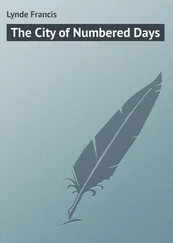Francis Lynde - Pirates' Hope
Здесь есть возможность читать онлайн «Francis Lynde - Pirates' Hope» — ознакомительный отрывок электронной книги совершенно бесплатно, а после прочтения отрывка купить полную версию. В некоторых случаях можно слушать аудио, скачать через торрент в формате fb2 и присутствует краткое содержание. Издательство: Иностранный паблик, Жанр: foreign_prose, на английском языке. Описание произведения, (предисловие) а так же отзывы посетителей доступны на портале библиотеки ЛибКат.
- Название:Pirates' Hope
- Автор:
- Издательство:Иностранный паблик
- Жанр:
- Год:неизвестен
- ISBN:нет данных
- Рейтинг книги:4 / 5. Голосов: 1
-
Избранное:Добавить в избранное
- Отзывы:
-
Ваша оценка:
- 80
- 1
- 2
- 3
- 4
- 5
Pirates' Hope: краткое содержание, описание и аннотация
Предлагаем к чтению аннотацию, описание, краткое содержание или предисловие (зависит от того, что написал сам автор книги «Pirates' Hope»). Если вы не нашли необходимую информацию о книге — напишите в комментариях, мы постараемся отыскать её.
Pirates' Hope — читать онлайн ознакомительный отрывок
Ниже представлен текст книги, разбитый по страницам. Система сохранения места последней прочитанной страницы, позволяет с удобством читать онлайн бесплатно книгу «Pirates' Hope», без необходимости каждый раз заново искать на чём Вы остановились. Поставьте закладку, и сможете в любой момент перейти на страницу, на которой закончили чтение.
Интервал:
Закладка:
The second time Grey mentioned this I thought it might be well to dig a little deeper.
"You are Bonteck's guest, Jack, and so am I," I said bluntly. "Are you making charges?"
"Not me," returned the married lover, with a lapse into prematrimonial carelessness of speech. And then, after a reflective moment, "But for that matter, I don't have to make them, Preble. Everybody buys wisdom of the major now and then over the card table. It has come to be a proverb, back home. For a supposedly rich man he plays a mighty thrifty game – and that remark is not original with me, not by a long shot."
"Possibly the major is saving his money for Gerald," I suggested, more to see what Grey would say than for any other reason.
Grey's slow wink was more expressive than many words.
"That worn-out joke doesn't fool you any more than it does me," he asserted baldly. "You've never seen Major Terwilliger in his great and unapproachable act of coupon-clipping, have you?"
I was obliged to admit that I had not.
"Well, neither has anyone else, I venture to say. He is a shrewd, shifty old rounder, Preble; no more and no less. And there are men in New York who will tell you that he sails pretty close to the wind a good bit of the time – that he has to to save his face. It's a nasty thing to say, but I more than half believe he is playing Gerald up to Conetta for purely fiduciary reasons."
"But Conetta has no money," I protested.
"No; but Aunt Mehitable has – a barrel of it. And it will come to Conetta, sooner or later – always provided Conetta marries to please Aunt Mehitable."
Now this statement was not exactly in accordance with the facts, as I knew them, or thought I knew them, and I said so.
"Miss Mehitable's will is already made, and I happen to know that her money will not go to Conetta. It will be divided among a number of charitable institutions."
We were on the starboard promenade forward, and Grey looked around as if to make sure there were no overhearers.
"I'm going to breach a professional confidence and tell you something, Preble, taking it for granted that it will go no farther. One day about three years ago, while I was reading for my Bar examinations in the office of Maxim, Townsend and Maxim, Miss Mehitable did make just such a will as you mention; I know it because I made the transcript of it. That will was left in the office safe, and something like a week later she came back, asked for it, got it, and destroyed it. Then she had Townsend draw another – which I also copied. That one, so far as I know, is still in existence and unchanged. It leaves a few bequests to the charity folk, and the bulk of the property to Conetta."
If Grey had drawn off and hit me in the face I could scarcely have been more dumfounded. For some inscrutable – and wicked – reason of her own, Aunt Mehitable had wanted to break our engagement, Conetta's and mine, and the loss of my patrimony had given her an easy half of the means. Upon hearing of my loss she had quickly supplied the other half by making the will which she didn't mean to let stand – which she had promptly destroyed as soon as I had been safely eliminated. The grim irony of her expedient might have been amusing if I hadn't been so angry. She might easily have lied to me about the disposition of her property, but that would have been against her principles. To quiet what she was probably calling her conscience, she had actually made the will with which she had clubbed me to death; a will which she fully intended to revoke, and did revoke – after I was out of the way.
How much or how little Grey suspected the turmoil he had stirred up in me by his breach of office confidence I do not know, but he was good enough to give me a chance to get back to normal, searching his pockets for a cigar, and, when he had found one, turning his back to me – and the breeze – while he lighted it.
"Do you think Miss Gilmore believes in the major's coupon clipping?" I asked, after I had contrived to swallow the shock he had given me.
Again he let me see the slow wink.
"That is the farcical part of it. For a sharp-eyed, keen-witted maiden lady who has made a good bit of real money buying and selling in the Street, it is little less than wonderful. But it's a fact, Preble; she does believe in it. She lets the major write himself off at his own valuation, and never dreams of asking to see a certified check. She seems to regard Jerry Dupuyster as one of the few really desirable matrimonial propositions on the market. That is why she is here – with Conetta."
This last assertion of Grey's told me nothing that I had not already set down as an obvious fact, but his gossipy talk afforded a luminous commentary upon the manner in which an isolated group of human beings will secrete all sorts of small uncharities, if the isolation be only complete enough. These little incidents to the contrary notwithstanding, however, I could not see that Van Dyck was making much progress in his unmasking experiment. Up to this time, and outwardly, at least, we were still only a party of winter loiterers, pleasurers, decently grateful to our host and decently and conventionally well-behaved. If there were any plots or conspiracies of the money-hunting sort in the air, they were not suffered to become unpleasantly obtrusive.
But for one member of the party I was conscious of a great and growing contempt. In former days we of the younger set had known Holly Barclay as a sort of reincarnation of the Beau Brummell type; an idler of the clubs who lived upon his wife's money, and who was much too indolent to be even manfully vicious. Good-looking, in a way, self-centered, and even more finically careful for the creature comforts and luxuries than Major Terwilliger, I remember it had seemed grossly incredible to us younger folk that he could be the father of the thoughtful, high-minded and convincingly beautiful young woman who paid him the compliment of being his daughter.
From the beginning of the voyage Barclay's attitude had been sufficiently apparent to me, or I thought it was. I decided that he was somewhat anxiously weighing the pros and cons as between Van Dyck and Ingerson in the matrimonial scale; weighing them strictly with reference to the results as they might affect him, individually, and quite without concern for his daughter's future happiness. That Bonteck was a clean man and a gentleman, while his rival was everything that Van Dyck was not, appeared to cut no figure.
It was hugely farcical, if one could but shut his eyes to the possible tragedies involved. Holly Barclay had joined the Andromeda's company to dispose of his daughter. Ingerson had come as a cold-blooded buyer to the market. Miss Mehitable was hoping to corner the major and Gerald Dupuyster; and Mrs. Van Tromp, yielding precedence, of course, to Barclay and his schemings, had come on the chance of dividing the spoils, since one of the two chief matrimonial prizes would be left after Madeleine – or rather Madeleine's father – had secured the other.
That Mrs. Van Tromp's armament was only a secondary battery might have been denied by some. Alicia, the oldest of the trio, was, as I may have said, an attractive young woman of the athletic type, a rider to hounds, a champion swimmer, and a good comrade where men were concerned. In the modern meaning of the term she was a man's woman, with a sort of compelling charm that was all her own.
Beatrice, the second daughter, had, as has been noted, a bookish turn. If she had chosen to study surgery she would have been a ruthless vivisector. As a result of this inquiring bent, she had an astonishing, and sometimes rather disconcerting, knowledge of things as they are. But to offset the touch of the blue-stocking, she owned a pair of long-lashed eyes that kindled quickly at any torch of sentiment, and they were set in a face of uncommon sweetness – winsomeness, one would say, if the word were not so desperately outworn.
Читать дальшеИнтервал:
Закладка:
Похожие книги на «Pirates' Hope»
Представляем Вашему вниманию похожие книги на «Pirates' Hope» списком для выбора. Мы отобрали схожую по названию и смыслу литературу в надежде предоставить читателям больше вариантов отыскать новые, интересные, ещё непрочитанные произведения.
Обсуждение, отзывы о книге «Pirates' Hope» и просто собственные мнения читателей. Оставьте ваши комментарии, напишите, что Вы думаете о произведении, его смысле или главных героях. Укажите что конкретно понравилось, а что нет, и почему Вы так считаете.












